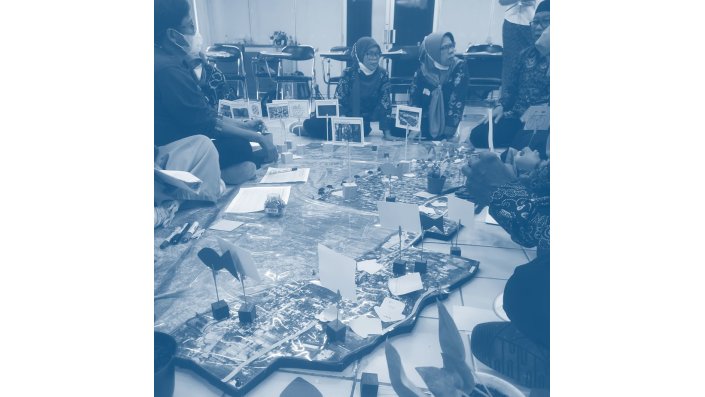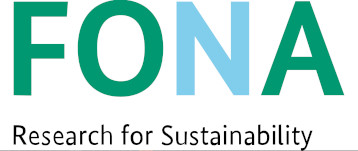PolyUrbanWaters

The PolyUrbanWaters project uses practical tools at the interface between integrated water resource management (IWRM) and urban planning. This enables municipalities to implement polycentric approaches to urban development and integrated, cross-sectoral water management.
The aim is to create new pathways for water-sensitive, sustainable and inclusive development that meet the local needs and realities of urban areas.
The project foresees phases of baseline assessment, visioning and scenario development that will lead to the development of transition pathways. All phases will be accompanied by regular monitoring.
Through participatory approaches, practice-oriented field studies and the exchange of best practices, PolyUrbanWaters supports pilot cities in Southeast Asia to further develop their capacities for strategic urban planning. This includes polycentric management of urban waters - a response to the need for water-sensitive measures in urban development.
General project objective
Polycentric approaches to urban water resources management contribute to the water-sensitive transformation of secondary and tertiary cities in Southeast Asia. This should create more resilient, inclusive and livable urban areas and contribute to the implementation of national and global sustainability goals.
Specific project objective
To develop an empirically tested conceptual framework 'Polycentric Approaches to Urban Water Resources Management in Secondary and Tertiary Cities in Southeast Asia'. This includes: a) the creation of suitable tools for the implementation and scalability of the concept; and b) a sustainable contribution to the systematic emergence of a new, interdisciplinary cooperation environment between research and industry at universities.
At a Glance
| Category | Description |
|---|---|
| Research project | Polycentric Approaches to the Management of Urban Water Resources in Southeast Asia - A Localization of the Sustainability Goals of Agenda 2030 and the New Urban Agenda at the City/Municipality Level (Polyurbwater). |
| Management | For the TH Köln: Prof. Dr. Lars Ribbe |
| Faculty | Faculty of Spatial Development and Infrastructure Systems |
| Institute | Institute for Technology and Resource Management in the Tropics and Subtropics (ITT) |
| Partners |
- Bremen Overseas Research and Development Association (BORDA e.V.) (coordinator) - Technical University of Berlin Further project partners: More |
| Sponsors | German Federal Ministry of Education and Research |
| Duration | 2021-2025 |
| Website |
The PolyUrbanWaters project responds to an emerging discourse in Southeast Asia between academia, policy makers, the private sector and civil society, based on the following premises:
- "Water" should be considered as a cross-cutting issue in urban development as it is intertwined with numerous aspects of urban life, including housing, basic services, ecosystem management, livelihoods, energy and transportation.
- "Classical" urban planning models - such as the implementation of master plans based on centralized infrastructure that grows steadily over time - have reached their limits.
- Approaches should be developed and implemented that enable the SDGs to be located in the country-specific context and in accordance with the national SDG plans.
- Flexible and scalable approaches should address existing and emerging challenges for urban water resources management, such as the dynamic development of residential and industrial areas, social coherence, the provision of ecosystem services and resilience to climate change.
PolyUrbanWaters | Project Impressions 360°
More 360° Impressions:
As a practice-oriented research project, Polyurbwater:
- will concretize and test the concept of "Polycentric Approaches to Urban Water Resources Management in Southeast Asia" through exploratory research and development of adaptable tools anchored in three real-world laboratories (Cambodia, Laos and Indonesia). These instruments are to become tangible and operational for scientists, decision-makers, experts, the private sector and civil society.
- further specify the concept of resilience in an important area of secondary and tertiary urban development to make it more tangible for decision-makers and researchers.
- develop specific polycentric concepts for the sustainable management of urban water bodies in their technical, social, ecological, financial and governance dimensions (support city administrations in the formulation of bankable projects).
- generate a scientific knowledge base and promote knowledge transfer on necessary parameters and conducive environments for polycentric, water-sensitive urban development. This serves as a lever for a transformation towards sustainability at the municipal/local level.
- support the application of tools and capacity building to promote transformation processes at local, national and SEA level.



















